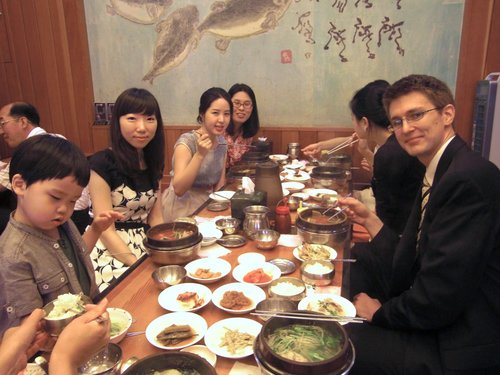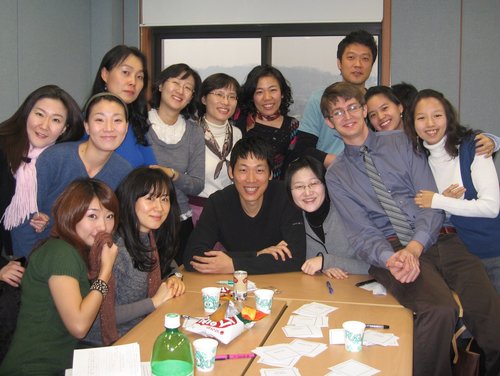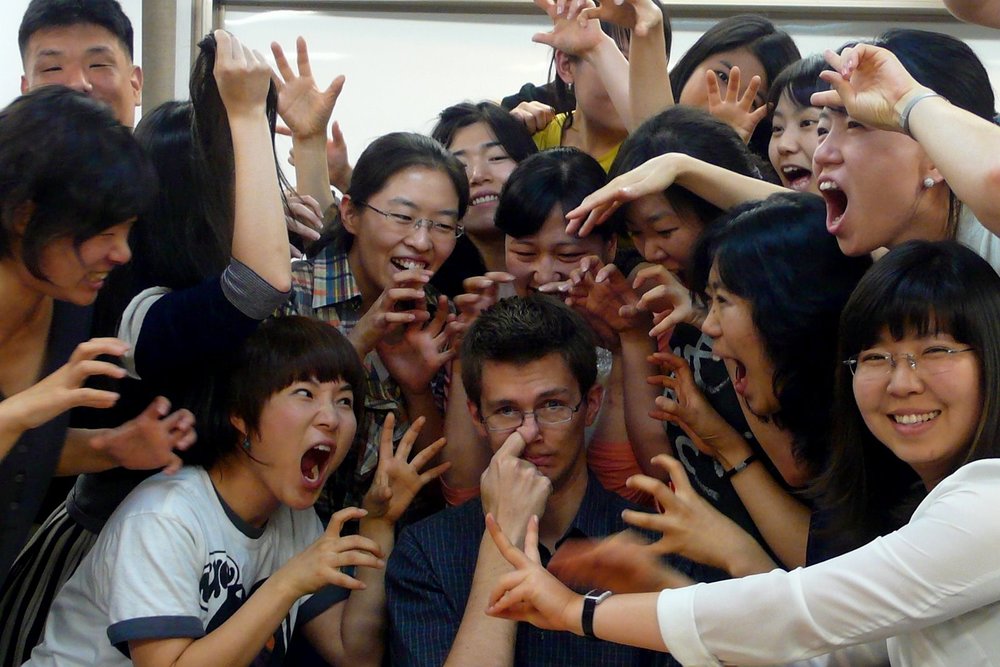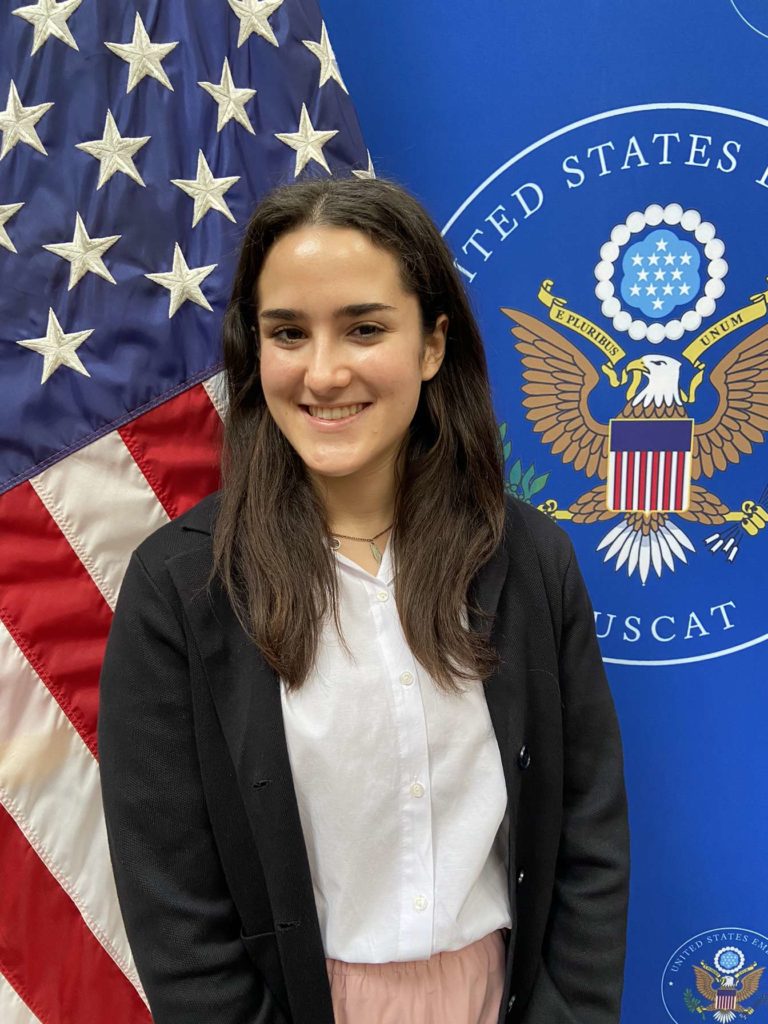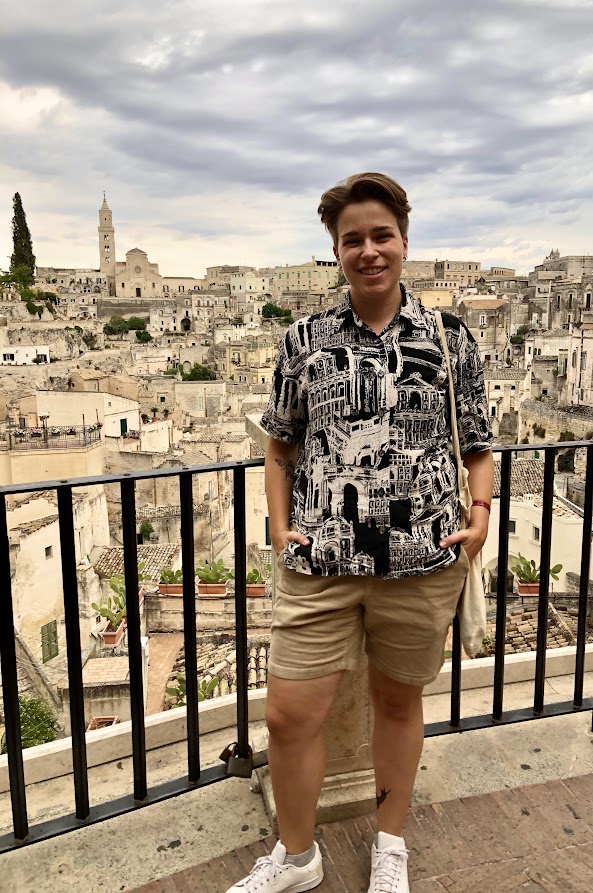When I reached out to Austin Kaufmann about an interview for our blog, he wasn’t sure he had a story we would want to publish, one that highlighted the transformative power of a language learning experience. He certainly had experience with languages, spending time living in Lithuania, Kyrgyzstan, and Korea. His concern, however, was that since living in these countries, he had an experience shared by many learners: the saying preached by language teachers everywhere, “If you don’t use it, you lose it,” became true for Austin. After leaving each country, he had few opportunities to speak the languages, and his fluency faded with time. However, Austin’s story is still a powerful example of how learning a new language can change a person, and the effects become even more clear in this context. While the languages themselves aren’t what impact him on a daily basis anymore, the experiences he had which were directly influenced by language learning have left a lasting impact.
Currently, Austin works as an instructor at Michigan State University, teaching English to non-native speakers. His decision to study English education and ESL in college was a large part of what brought him to several countries around the world. In college, Austin studied abroad in Lithuania, where he learned Lithuanian in class, and some Latvian from friends. Even while he was still in Lithuania, however, fluency was not perfect: he notes that because it was an international school, he was able to speak in English much of the time. He was not forced to speak Lithuanian on a daily basis, unless he spent time with local families.
This theme is recurring in Austin’s story. When he later speaks of three years spent in South Korea, he makes a similar observation. It’s easy, while in a foreign environment, not to venture far from a group of people who speak your own language– something which is familiar to many foreign exchange students. Without having a personal experience abroad, it’s hard for many to empathize with this tendency as Austin does with his students.
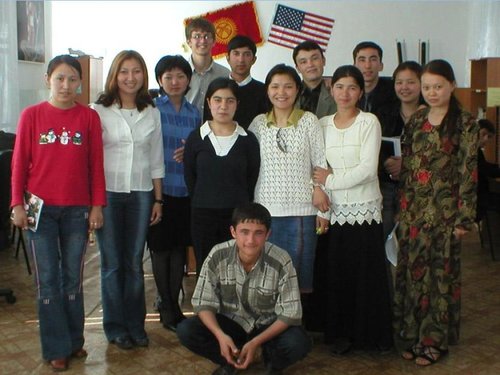
Compared to some of his other experiences abroad, however, Austin’s time in Kyrgyzstan involved the deepest language learning, and the effects of this experience were powerful. After getting married, Austin and his wife had wanted to travel beyond their home in rural Indiana. Their decision was made in the wake of 9/11: as fear and hatred towards Muslims grew in America, they decided to travel and work with the Peace Corps in the Muslim-majority country of Kyrgyzstan, working as English language instructors in local villages. The Peace Corps provided three months of pre-service training in Kyrgyzstan, where the volunteers were given a crash course in the Kyrgyz language and culture. The language is small in terms of speakers, and the resources for learning it few– prior to the Soviet Union’s influence, the language was solely an oral tradition, lacking written materials. While Kyrgyz literature has grown some since then, the volunteers lacked even a high quality dictionary to aid them. The learning had to continue, however, as Austin and his wife began their assignment in an area where very few people spoke English.
Developing the ability to communicate with the locals in their native language, despite extreme difficulty, was powerful. Austin recalls the frustration he experienced when, after addressing someone in Kyrgyz, they would respond in Russian, assuming that was his language because he was white. He also recalls the gratitude expressed when a person recognized that he had learned a language with just 4 million speakers in order to communicate with him. Becoming immersed in the local language and culture helped him beyond his classroom as well. In the summers when he wasn’t teaching English, Austin worked on developing a teacher training program with three local schools: a Russian, an Uzbek, and a Kyrgyz university. This multi-ethnic partnership which he took for granted at the time, became remarkable in retrospect, as only a year after his time in Kyrgyzstan, ethnic tensions between these groups exploded into violence. The reward of this experience was what eventually brought Austin back to the United States, so he could attend grad school in order to continue with similar programs.
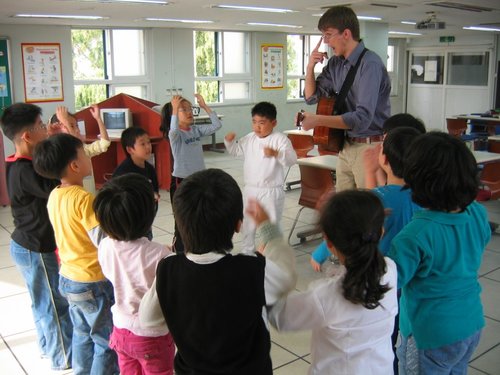
Austin and his wife Victoria spent three years in South Korea after Austin’s grad school, but returned to the U.S. once more after having their first child. The values and impacts these experiences had on Austin are many. He speaks of the value of having the experience of a language minority and the empathy it increased, especially as a language instructor. Without having a personal experience abroad, it’s hard for many to empathize with common struggles such as the temptation to stay within cultural groups. Empathy was also used to describe how his perspective on things like global news changed: world events no longer seem distant and unimportant. To Austin, the people being affected have faces and names, often of people he knows and loves.
So, Austin doesn’t speak Kyrgyz, Lithuanian, Latvian, or Korean anymore. But from the time he spent abroad learning these languages, came moments of unity, gratitude, empathy, and understanding. Terms like“global citizenship” are often used to describe the impact of language learning, yet these concept can seem vague and elusive. Austin’s story offers a more concrete and simple lesson in what language learning by living abroad offers: the slight changes in how we perceive those who seem different than us, created by sharing the struggles of foreigners in our own country, and experiencing people in other countries as friends and neighbors, with more commonalities than differences.
– Story by Katherine Stark
